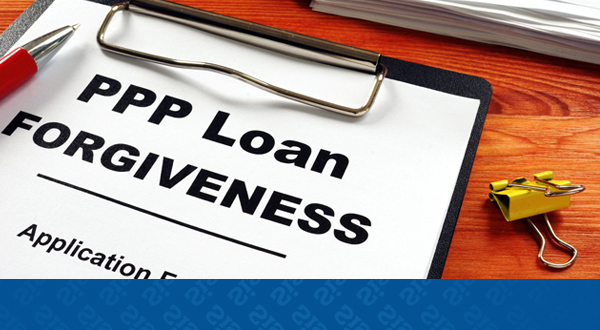When the Paycheck Protection Program (PPP) was rolled out earlier this year, it was clear that using the PPP funds for their intended purpose would result in the forgiveness of the debt. It was also made clear that the forgiveness would not result in taxable income, as would normally be the case.
It was not clear whether the spending of PPP funds would also result in a deduction. Many assumed the deductions would be allowed, even if that seems like a double tax benefit. The IRS has always taken the position that expenditures related to forgiven debt do not result in a deduction. That seems fine because we are relying on Congress to codify its intent, thus superseding the IRS position. As of today, Congress has not done so and the IRS has doubled down on its position.
In a Revenue Ruling issued November 18, the IRS clarified that a taxpayer that received a PPP loan and paid or incurred otherwise deductible expenses with the PPP proceeds may not deduct those expenses if the taxpayer reasonably expects to receive forgiveness of the PPP loan, regardless of whether the forgiveness application has been filed. The IRS offered two scenarios. First, a borrower applies for forgiveness in November 2020 but does not receive notification of forgiveness until 2021. Second, the borrower applies for and receives forgiveness in 2021. In both cases, the IRS position is that PPP related expenses are not deductible in 2020 because there is a reasonable expectation of forgiveness.
What does this mean for our business clients? It is not good. Assume your net income for tax purposes (income minus expenses) is $100,000. If the expenses included wages of $25,000 paid with PPP funds, your true taxable income is $125,000. In effect, the entire PPP loan amount is added back to taxable income. If your PPP loan was $400,000, for example, that is a huge adjustment to the tax return.
So what should we do? Some of our clients have proceeded with filing the application, while others are waiting to see if Congress will act. Either action is reasonable because the IRS position essentially states that it does not matter when the application is filed. Forgiveness applications are not due until 10 months after the last day of the borrower’s covered period. For example, a borrower whose covered period ends on October 30, 2020 has until August 30, 2021 to apply for forgiveness.
Finally, if you are so inclined, you may write your Congressperson and encourage them to pass the House and Senate bills before them (H.R. 6821 and S.3612, the Small Business Expense Protection Acts of 2020). The American Institute of Certified Public Accountants has already drafted such correspondence. If you would like a copy, please contact our office.
California Small Business Hiring Tax Credit
Did you add employees between July and November? If so, your business may qualify for the California Small Business Hiring Tax Credit. California Senate Bill 1447, also known as the Main Street Hiring Credit, provides small businesses a tax credit for hiring employees after June 30 and before December 1. The tax credit may be used to offset income taxes, as well as sales and use taxes. To qualify for the credit, the taxpayer (employer) must have fewer than 100 employees on December 31, 2019 and have experienced a 50% decrease in gross receipts from April to June 2020, as compared to April to June 2019. The credit is equal to $1,000 for each additional full-time equivalent added during the hiring period.
Below is an excerpt from the CDTFA website:
On December 1, 2020, the California Department of Tax and Fee Administration (CDTFA) will begin accepting applications for tentative small business hiring credit reservation amounts through an online reservation system. Qualified small business employers must apply with the CDTFA for a credit reservation. The credit reservations will be allocated to qualified small business employers on a first-come, first-served basis. The reservation system will be available from December 1, 2020 at 8:00 a.m., through January 15, 2021. Within 30 days of receiving an application, CDTFA will notify each applicant via email whether a tentative credit reservation has been allocated to them and the amount of the tentative credit reservation.For more information, call our office, or visit the website at https://cdtfa.ca.gov/taxes-and-fees/SB1447-tax-credit.htm
